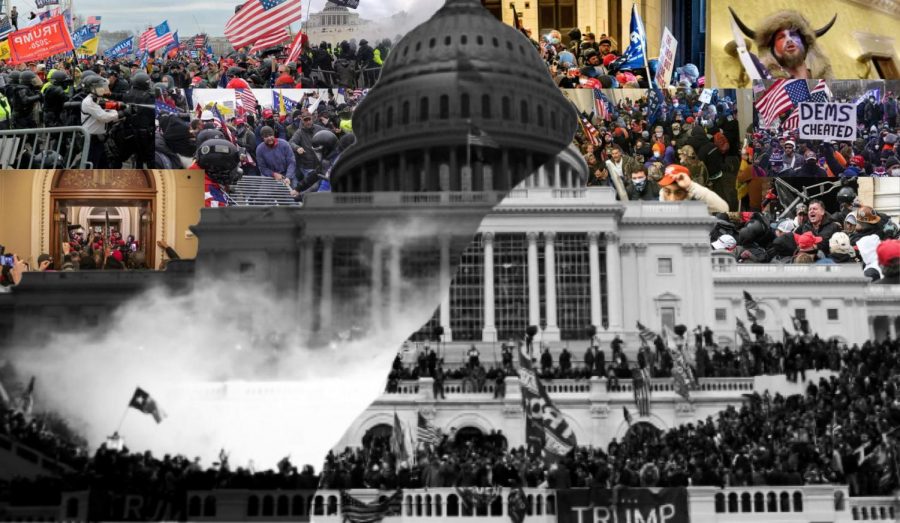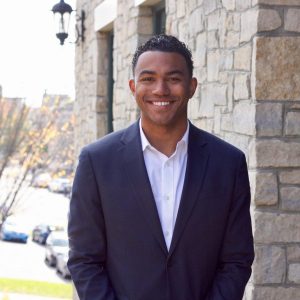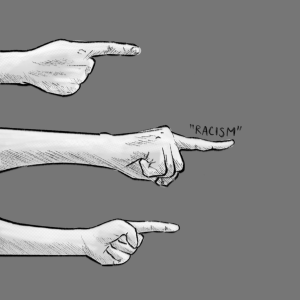Pro-Trump Supporters Storm Capitol to Stall Election Certification
January 28, 2021
January 6th, 2021, will most certainly be a day immortalized in history. For months now, President Trump has maintained his rhetoric claiming widespread election fraud, for which there is no substantial evidence. On Wednesday, January 6th, Congress gathered in a joint session to certify the Electoral College votes, a usually unremarkable procedure that goes unnoticed by the press.
However, President Trump saw this as his final chance to try and overturn the results of the November election and hold onto power. In a White House speech Wednesday morning, President Trump said, “We’re going to walk down to the Capitol, and … you have to show strength, and you have to be strong.” After his speech, Trump supporters marched to the Capitol where they continued chants of “Stop the Steal” and “Make America Great Again.” The tensions escalated quickly as Trump supporters turned to violence against police while attempting to breach the Capitol buildings. At around 2:30 PM Eastern Time, the Capitol was breached as Congress began the process of certifying the vote, delaying the reconvening of the joint session until 8 PM on Wednesday. Within that time, Trump supporters broke into the Senate floor and congressional offices—most notably House Speaker Nancy Pelosi’s office. This attack marked the first breach of the Capitol in over two centuries, the last time being in the war of 1812 by the British army.
Members of Congress were taken to a secure location just before the violence reached the House and Senate floors. Reportedly, many Republican congresspeople refused to wear a mask while in close quarters with other members. Later, multiple members of Congress tested positive for COVID-19, citing Republican lawmakers’ refusal to wear masks as a likely cause. Ayanna Pressley, who represents part of Cambridge, expressed her frustration: “We’re not going to survive a terrorist attack to be exposed to a deadly virus.”
As the day continued, millions across the US watched in real time, through social media and TV, horrified at the spectacle. One of these people was Vice-Mayor Alanna Mallon of Cambridge, who spoke to the Register Forum about her experience watching: “I don’t think I’ll ever forget the images of the Capitol being breached[,] … the view of the plainclothes DC policemen with their guns drawn, through the broken windows of the House chamber. For me, that’s an image that will be burned into my memory for the rest of my life.”
Andre Leon ’23 also expressed his thoughts on the attack, and what it means for American democracy: “Right now we’re in a period where our democracy is really getting tested … so when I see these images and hear about it, I think, this is a historic moment. We’ll see how strong our democracy can be.”
Many people are pondering the strength of democracy right now, including Ms. Lily Rayman-Read, a US History teacher at CRLS, who shared, “It challenges our very core concept of the safeguards of American democracy, and the sanctity of our Capitol, as a safe institution that operates that democracy. … So this was a very visceral challenge to I think the core of the American institutional system.”
The discussions around the Capitol attack are happening primarily on large social media platforms. Due to President Trump’s comments inciting violence online, many platforms have banned his accounts, including Twitter and Facebook. In addition, Parler, a “free speech” social media network, has been taken down from the App Store and Google Play Store, for users’ refusals to delete posts inciting violence at the Capitol.
Parler is most used by conservatives and members of alt-right groups; the platform has significantly grown in popularity since the November election. For many, this brought up a bigger issue of social media moderation, and how a platform should allow content to be spread. “We’re not talking about a few posts here and there, we’re talking about a social media platform that was used by the right to stage an insurrection on the United States of America,” said Vice-Mayor Mallon on Parler’s effect on American democracy. “There were some real plans to do some real harm, and I think that warrants pulling a platform.” Since the attack on January 6th, many Parler posts have surfaced that expose failed plans of “rape, torture, and assassination of named public officials and private citizens,” according to Amazon Web Services, which banned Parler from using their hosting services after the attack on the Capitol.
President Trump’s words on Twitter prior to, during, and after the attack on the Capitol have led many to blame him for inciting the attack and encouraging violence against the US. Those blaming him include congressional Democrats, who filed an article of impeachment against President Trump, accusing him of the charge “incitement of insurrection.” On Wednesday, January 13th, the House of Representatives voted 232 – 197 in favor of impeachment, making him the only president to have been impeached twice. It is currently unknown how the Senate will proceed with a possible trial, after Mitch McConnell said he would not reconvene the Senate before they are scheduled to come back on Friday, January 22nd. With Democrats in control of the Senate come January 20th, they are expected to push forward with the trial, although legal experts debate whether you can convict a former president.











